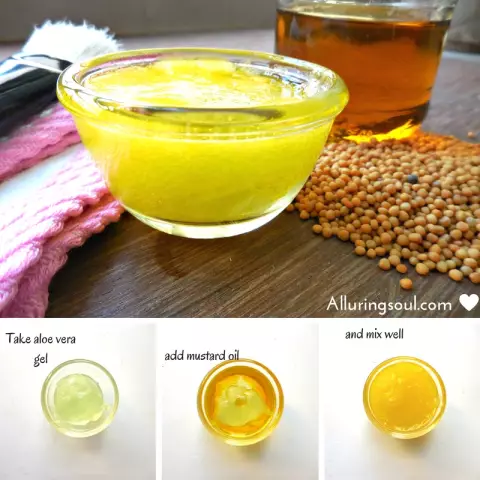- Author Rachel Wainwright wainwright@abchealthonline.com.
- Public 2023-12-15 07:39.
- Last modified 2025-11-02 20:14.
Ioddicerin
Yodditserin: instructions for use and reviews
- 1. Release form and composition
- 2. Pharmacological properties
- 3. Indications for use
- 4. Contraindications
- 5. Method of application and dosage
- 6. Side effects
- 7. Overdose
- 8. Special instructions
- 9. Application during pregnancy and lactation
- 10. In case of impaired renal function
- 11. In case of impaired liver function
- 12. Drug interactions
- 13. Analogs
- 14. Terms and conditions of storage
- 15. Terms of dispensing from pharmacies
- 16. Reviews
- 17. Price in pharmacies
Latin name: Ioddicerinum
ATX code: M09AX
Active substance: iodine
Producer: FARMAK, JSC (Ukraine)
Description and photo update: 19.10.2018

Yodditserin is a topical preparation with antiseptic and anti-inflammatory effects.
Release form and composition
Dosage form - sterile solution (25 ml in a dropper bottle, 1 bottle in a cardboard box).
100 g of solution contains active substances:
- crystalline iodine - 0.5 g;
- dimexide (dimethyl sulfoxide) - 30 g;
- glycerin - 69.5 g
Pharmacological properties
Pharmacodynamics
Iodditcerin has anti-inflammatory, bactericidal, local anesthetic effect. Antibacterial activity is manifested against pneumococci, meningococci, staphylococci, streptococci, gonococci, escherichia (including invasive, enteropathogenic, toxicogenic strains), peptococci, Klebsiella, salmonella, proteus, serration, cytobacterium bacillus anaerobes, mycoplasma, chlamydia, chickenpox, herpes viruses.
The drug does not accumulate in the area of application, this contributes to the absence of painful, irritating and necrotizing effects. Iodine molecules are bound by dimethyl sulfoxide, which ensures their transmembrane distribution in normal tissues and necrotic foci.
Pharmacokinetics
The solution is quickly absorbed from the application site, after 15-20 minutes a characteristic smell of dimethyl sulfoxide is felt in the air exhaled by the patient. Bioavailability - 100%, while there is no concentration of iodine ions at the site of drug application.
Free iodine ions bind to proteins and the surface of bacteria, the formed iodamines enter tissues and organs. Depending on the request, iodine ions are selectively absorbed by the thyroid gland and take part in the synthesis of thyroxine. They contribute to the enhancement of catabolic processes, having a positive effect on the bioenergetics of tissues and organs. Iodine ions have a beneficial effect on protein and lipid metabolism, reduce cholesterol and lipid levels.
Iodine is excreted through the kidneys (to a greater extent), intestines and sweat glands. During lactation, it is secreted by the mammary glands.
Indications for use
According to the instructions, Yodditserin is used in the treatment of purulent infectious lesions of the mucous membranes and skin in dermatology, obstetric and gynecological practice, surgery, oncology, dentistry, otorhinolaryngology, urology, proctology, pediatrics.
Contraindications
- myocardial infarction;
- stroke;
- angina pectoris;
- liver failure;
- renal failure;
- severe atherosclerosis;
- glaucoma;
- cataract;
- coma;
- period of pregnancy;
- breast-feeding;
- hypersensitivity to dimethyl sulfoxide and iodine.
Caution should be exercised if the patient suspects a predisposition to allergic reactions to iodine-containing preparations.
Instructions for the use of Yodditserin: method and dosage
The solution is intended for topical use.
Recommended dosage regimen:
- superficial minor pathological processes: 2-3 times a day, the lesion should be abundantly lubricated. Duration of treatment - until the infection completely disappears and heals;
- extensive or deeply located lesions: 2-3 times a day, it is necessary to apply gauze dressings soaked in solution to purulent wounds; for deep wounds, turundas or tampons should be introduced into them. Dressings or tampons can be covered with a waterproof film and secured with a bandage or adhesive tape;
- serous cavities, abscesses, abscesses: after pretreatment to remove pus, washing with hydrogen peroxide or sterile saline solution, 5-10 ml of solution should be injected and drainage should be installed to ensure a constant outflow of pus. The procedure is required to be carried out 2-3 times a day.
Side effects
The development of undesirable effects in the form of a skin rash, an increase in body temperature is possible.
Overdose
Symptoms: against the background of accidental ingestion of 50-100 ml of solution - vomiting, diarrhea, intoxication.
Treatment: urgent gastric lavage with 0.5% sodium thiosulfate solution is required. In the absence of a clinical effect, intravenous administration of up to 300 ml of 30% sodium thiosulfate solution is indicated.
special instructions
Treatment with Yodditcerin should be started after a drug tolerance test. The solution should be applied with a cotton swab to the skin of the forearm. If at the site of application does not appear: redness, sharp itching or signs of iodism, this indicates the absence of hypersensitivity to the drug.
Application during pregnancy and lactation
The use of the drug during pregnancy is contraindicated.
If it is necessary to use Yodditserin during lactation, breastfeeding should be discontinued.
With impaired renal function
The use of the drug in patients with renal failure is contraindicated.
If liver function is impaired
The use of the drug is contraindicated in liver failure.
Drug interactions
Interaction of Yodditserin with other drugs has not been established.
Analogs
Analogs of Yodditserin are: Vishnevsky Ointment, Solcoseryl, Fukortsin, Chlorophyllipt, etc.
Terms and conditions of storage
Keep out of the reach of children.
Store in a place protected from moisture and light.
The shelf life is 3 years.
Terms of dispensing from pharmacies
Available without a prescription.
Reviews about Yodditcerin
Reviews about Yodditserin are mostly positive.
The price of Iodditcerin in pharmacies
Currently, the drug is not available in the pharmacy chain, so the price of Iodditserin is unknown.

Anna Kozlova Medical journalist About the author
Education: Rostov State Medical University, specialty "General Medicine".
Information about the drug is generalized, provided for informational purposes only and does not replace the official instructions. Self-medication is hazardous to health!






